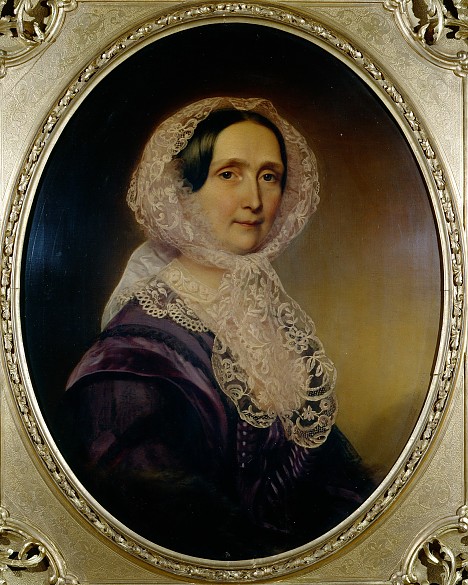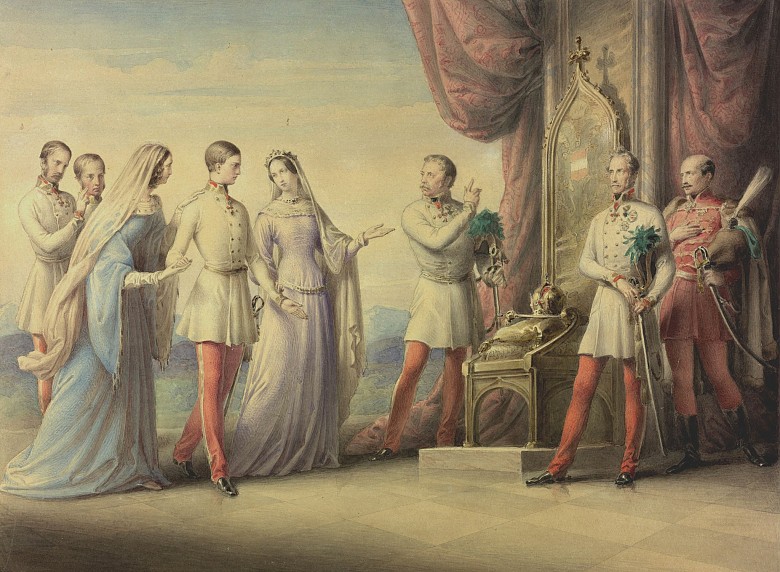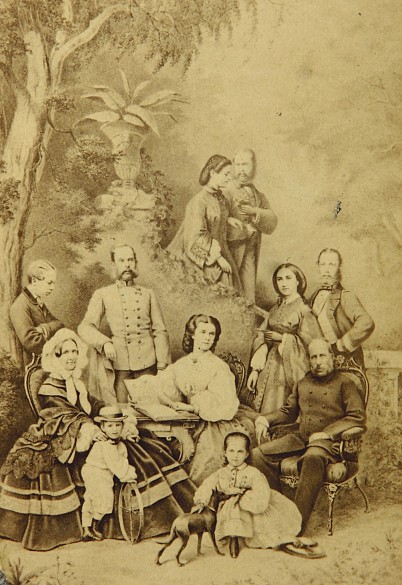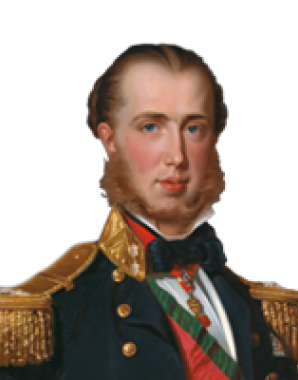Archduchess Sophie: The ‘secret empress’
Sophie’s hour came in 1848, when the ailing emperor Ferdinand abdicated in favour of his nephew, the 18-year-old Franz Joseph, in Olmütz, where the imperial family had taken refuge from the turmoil of the revolution.
While Sophie did not become empress as she had once hoped, since her husband Franz Karl waived his claim to the throne, she did gain considerable political influence. Her son, the young emperor Franz Joseph, was steeped in a sense of monarchical mission and was bent on regaining the power that had been curtailed by the revolution, but he was politically inexperienced and dominated by his energetic mother, on whom he relied for emotional support. Although Sophie did not openly interfere in day-to-day political decision-making, she was de facto the political mastermind and ‘agenda-setter’ behind her son. As the ‘secret empress’ she became a figure of hate for the liberal forces in the monarchy.
Sophie was strictly against the federalization of the Monarchy, which would have given an increased voice to the various ethnic groups in the political arena. She regarded the Hungarians in particular as a horde of revolutionary hotheads working openly for the downfall of the Habsburg monarchy. She was in favour of strengthening Austria’s presence in the German lands in order to retain its traditional primacy among the German princes.
To this end Sophie planned to marry her son to one of the daughters of her sister Maria Ludovika from the Bavarian ruling dynasty of Wittelsbach. Her plans came to fruition when Franz Joseph married his first cousin Elisabeth in 1854.
At first Sophie saw her young niece Elisabeth, hardly more than a child, as someone whom she could easily shape along her own lines. However, she had reckoned without her daughter-in-law’s wilfulness and spirit of defiance. Nevertheless, the popular cliché of Sophie as malevolent mother-in-law is too simplistic; the clash between the two women arose out of conflicting views of an empress’s role. Sophie had deliberately foregone this position for which she had originally striven, while Elisabeth had had the role more or less foisted upon her, and certainly had little idea of the consequences.
Since Sophie was the dominant figure at the Viennese court during the 1850s Elisabeth laid the blame for the difficulties she suffered as an inexperienced wife and young mother during her first years at the court squarely at the door of her mother-in-law. Elisabeth rejected outright the traditional role of empress that she was expected to fill, that is, of dedicating herself solely to the continuity of the dynasty as a devoted wife and mother. However, it should not be forgotten that in many respects Sophie had already filled the position of the ‘first lady of the empire’ that Elisabeth refused to assume. Sophie was also the emotional centre of the family, and she was an important mother figure to her grandchildren.
The failure of her son Maximilian as Emperor of Mexico was a heavy blow for Sophie. After his execution in 1867 she withdrew from politics. In the same year the Austro-Hungarian Compromise and the introduction of the constitutional monarchy dealt a final blow to her neo-absolutist ideals. She withdrew from court life and died at the age of 67 in 1872. Archduchess Sophie is buried in the Imperial Crypt of the Church of the Capuchin Friars in Vienna.

















